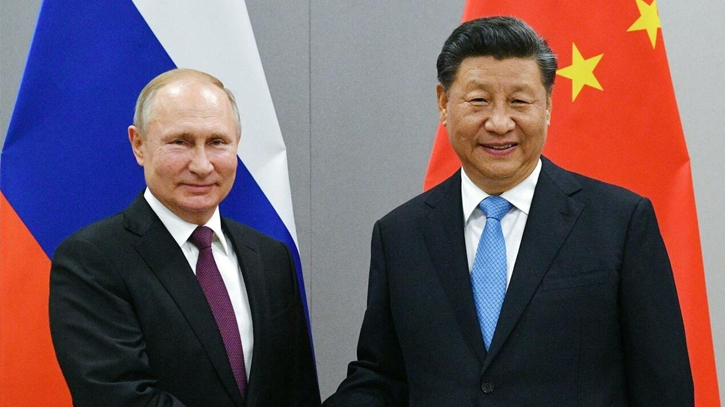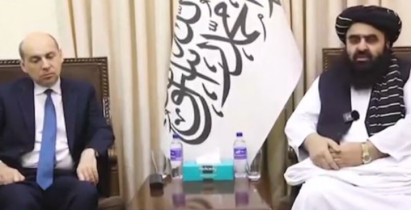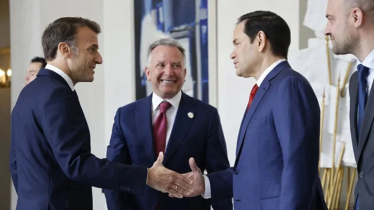
Vladimir Putin with Xi Jinping. Photo: Collected
Russian President Vladimir Putin concluded a two-day visit to China on Friday (17 May), emphasizing the countries’ burgeoning strategic ties as well as his own personal relationship with Chinese leader Xi Jinping as they sought to present an alternative to U.S. global influence.
Putin praised the growth in bilateral trade while touring a China-Russia Expo in the northeastern city of Harbin. He met students at the Harbin Institute of Technology, which is said to work closely with the People's Liberation Army.
Harbin, capital of China’s Heilongjiang province, was once home to many Russian expatriates and retains some of that history in its architecture, such as the central St. Sophia Cathedral, a former Russian Orthodox church.
Underscoring the personal nature of the relationship, Putin said the Harbin institute and his alma mater, St. Petersburg State University, will open a joint school for 1,500 students. “I’m sure that it will become a flagship of the Russian-Chinese cooperation in science and education,” he said
Speaking to reporters, Putin thanked Xi and praised their talks as “substantive,” saying that he spent “almost a whole day, from morning till evening” with the Chinese leader and other officials in Beijing the previous day.
The partnership between China and Russia “is not directed against anyone,” Putin said in a veiled reference to the West. “It is aimed at one thing: creating better conditions for the development of our countries and improving the well-being of the people of China and the Russian Federation.”
But he still had a back-handed rebuke for the U.S., and others who oppose the Moscow-Beijing relationship, saying an “emerging multipolar world ... is now taking shape before our eyes.”
“And it is important that those who are trying to maintain their monopoly on decision-making in the world on all issues ... do everything in their power to ensure that this process goes naturally,” he said.
Both Russia and China have frequently spoken of the “emerging multipolar world” in response to what they view as U.S. hegemony.
Joseph Torigian, a research fellow at Stanford University’s Hoover Institute, said the message being sent by China and Russia was clear: “At this moment, they’re reminding the West that they can be defiant when they want to.”
Taiwan’s Foreign Minister Joseph Wu addressed Putin's visit in an interview with The Associated Press, saying Western powers should continue to support Ukraine as part of sending a message that democracies will defend one another.
“If Ukraine is defeated at the end, I think China is going to get inspired, and they might take even more ambitious steps in expanding their power in the Indo-Pacific, and it will be disastrous for the international community,” Wu said.
Putin this month began his fifth term in power and Xi began his third last year. The Russian leader's trip "is an example of the two big authoritarian countries supporting each other, working together with each other, supporting each other’s expansionism,” Wu added.
Russia has become isolated globally following the 2022 invasion of Ukraine. China has a tense relationship with the U.S., which has labeled it a competitor, and faces pressure for continuing to supply key components to Russia needed for weapons production.
Putin began the day by laying flowers at a Harbin monument to fallen Soviet soldiers who had fought for China against the Japanese during the second Sino-Japanese war, when Japan occupied parts of China.
At the trade exhibition in Harbin, Putin emphasized the importance of Russia-China cooperation in jointly developing new technologies.
Messenger/Sumon








